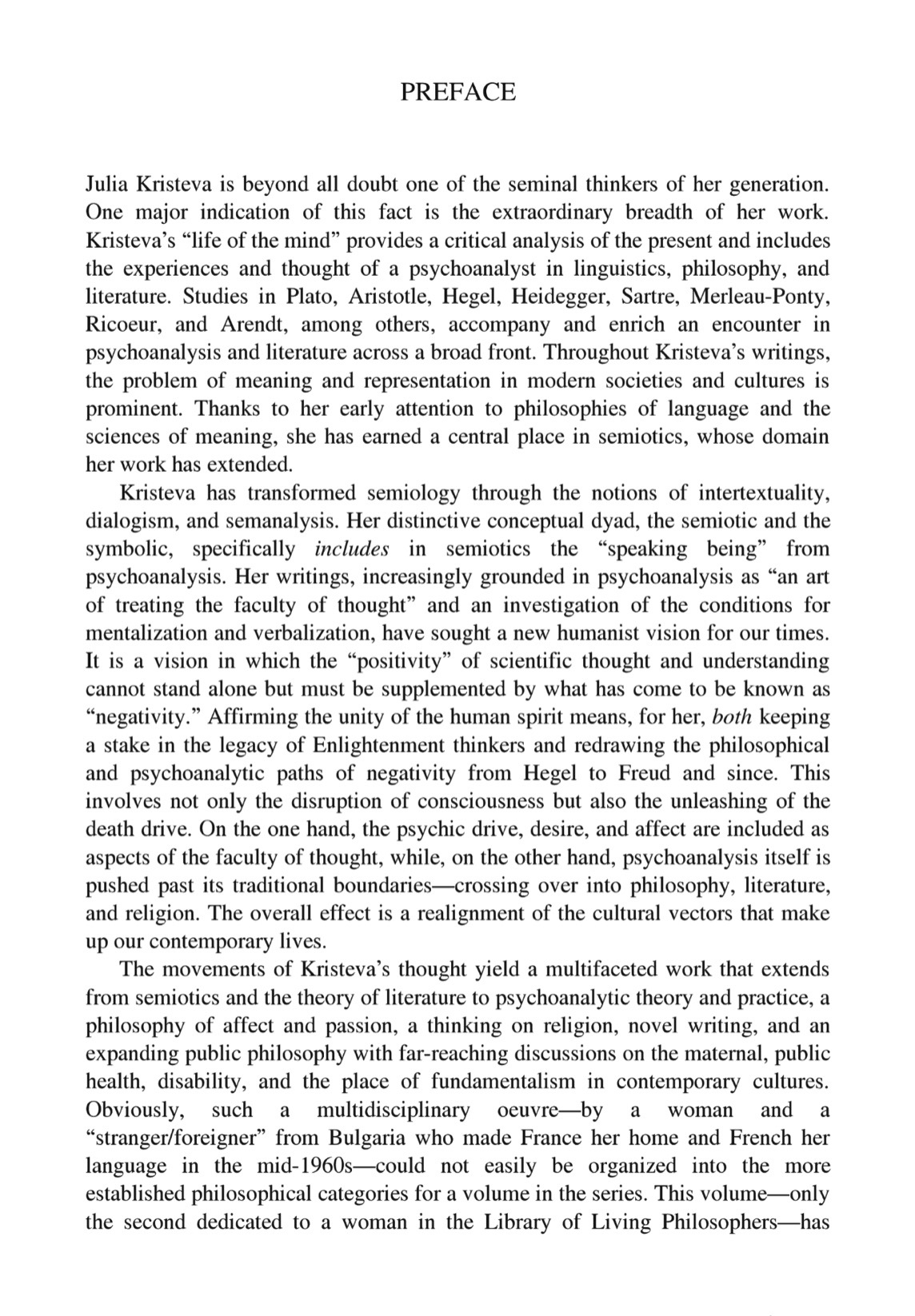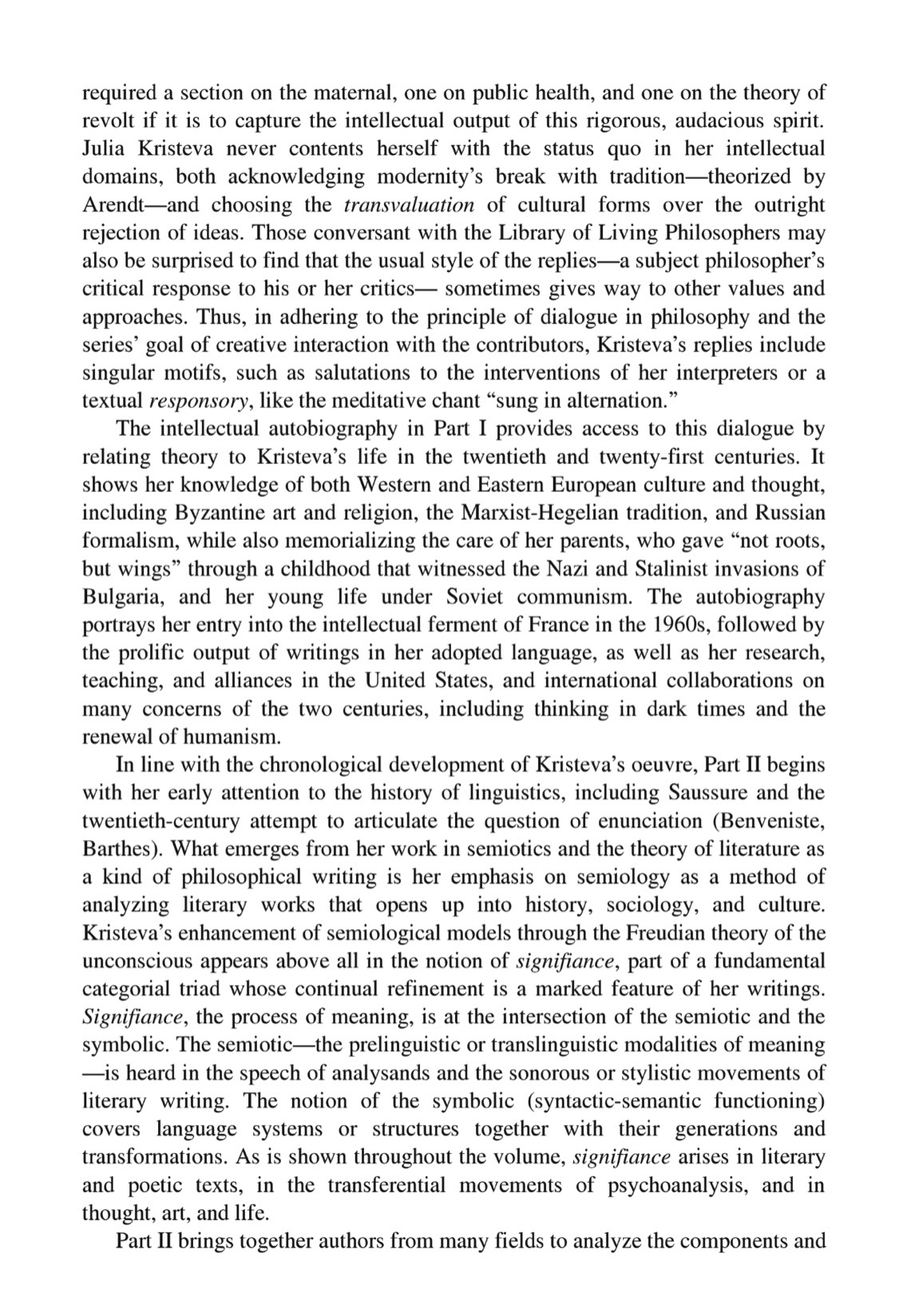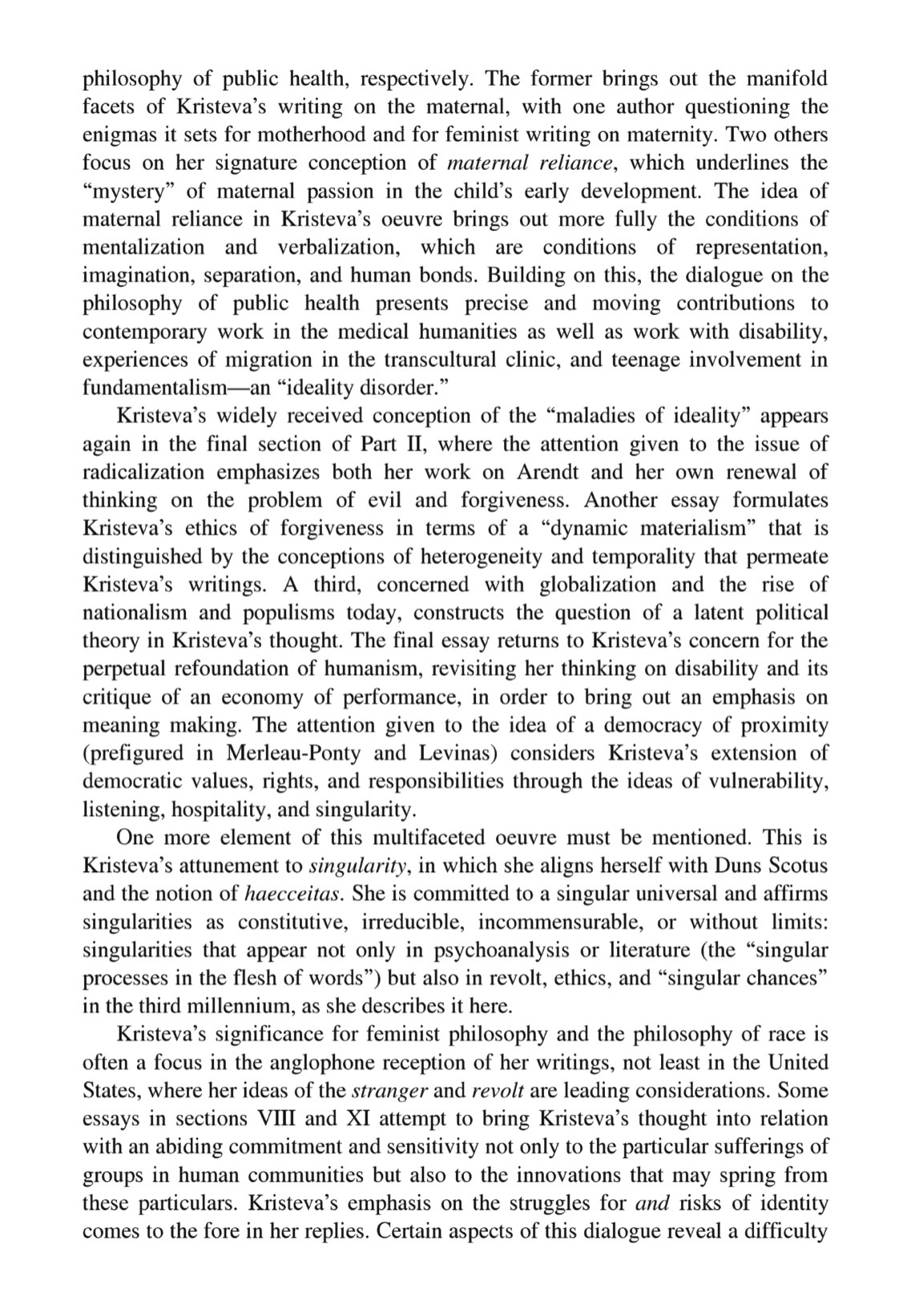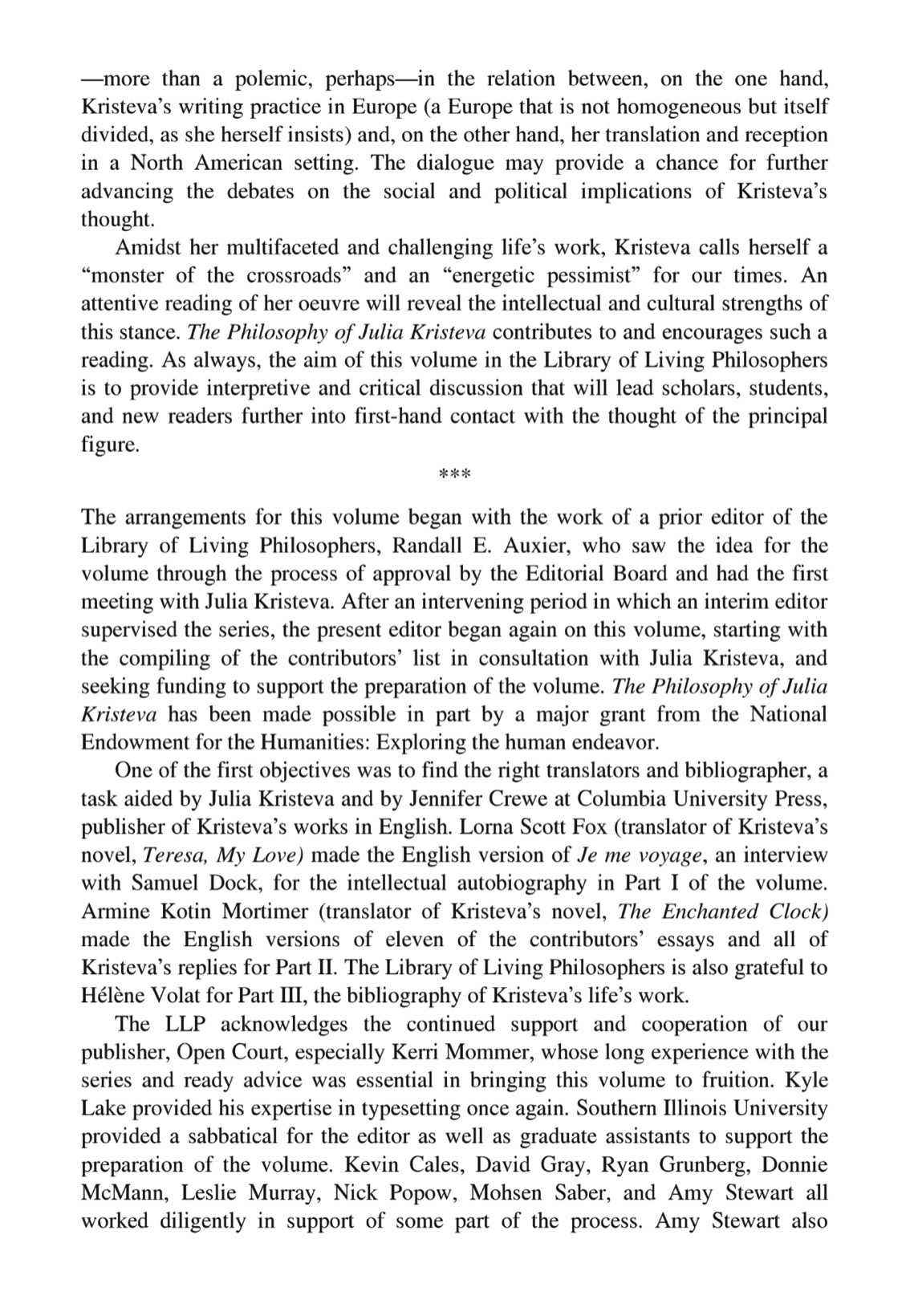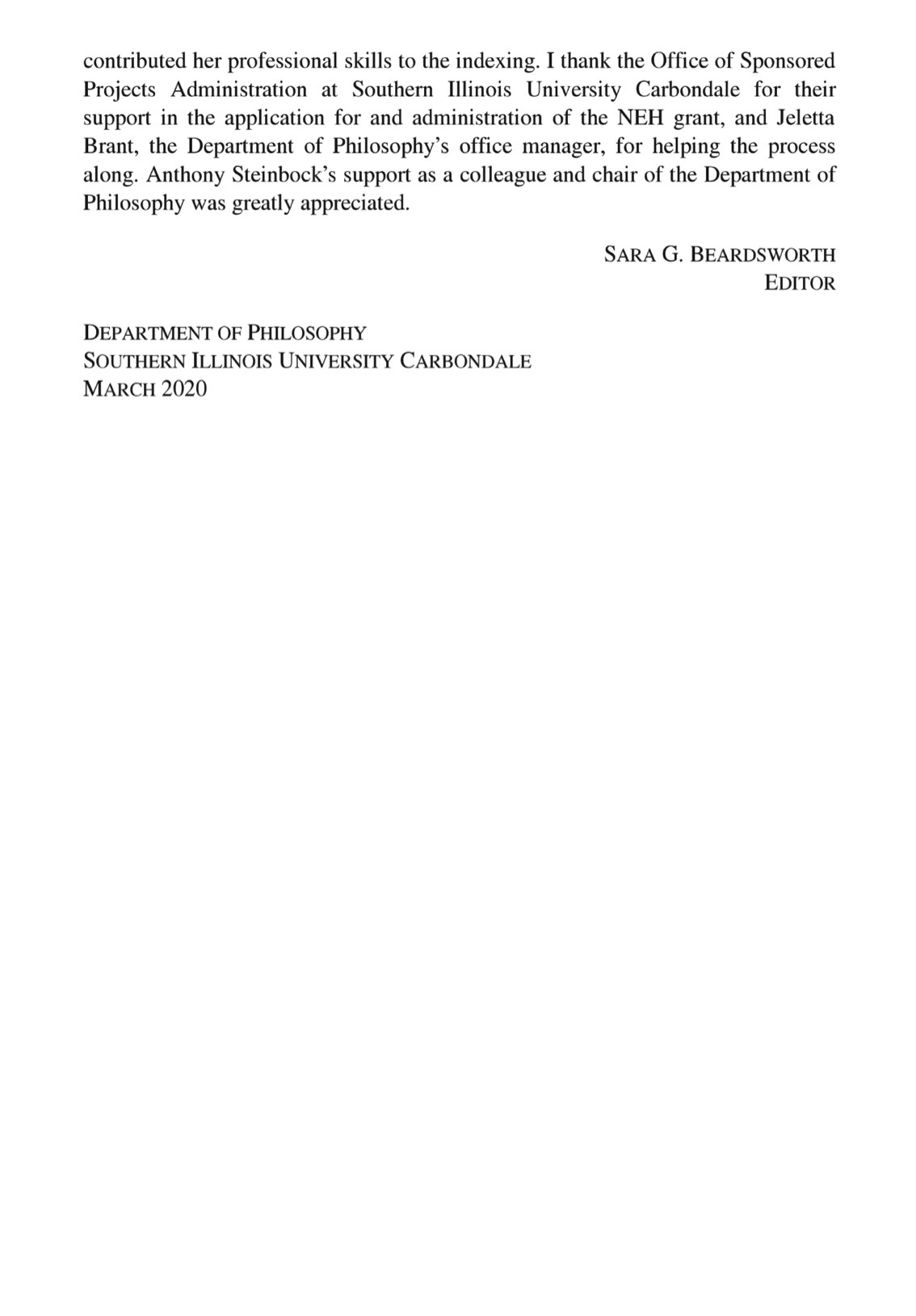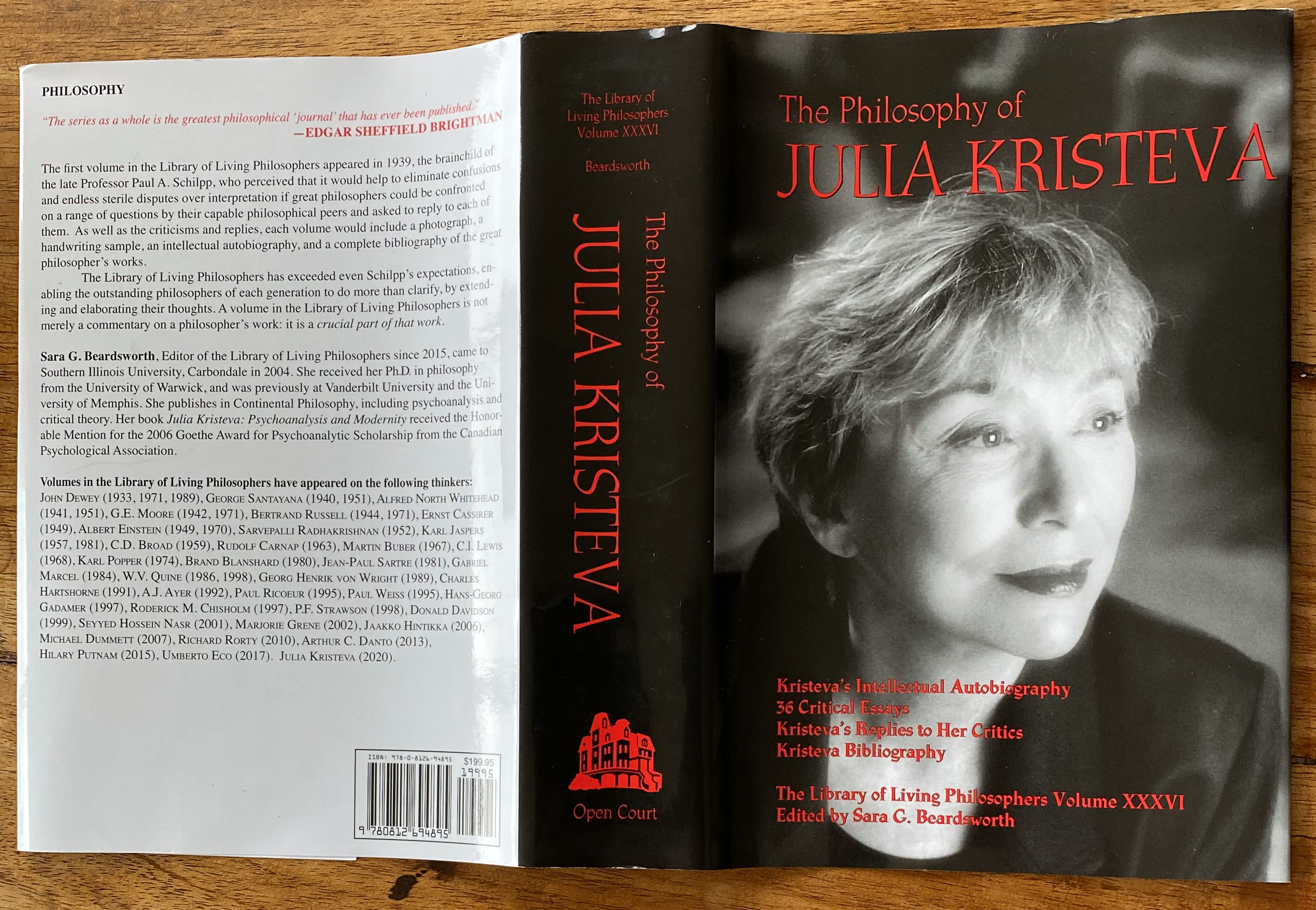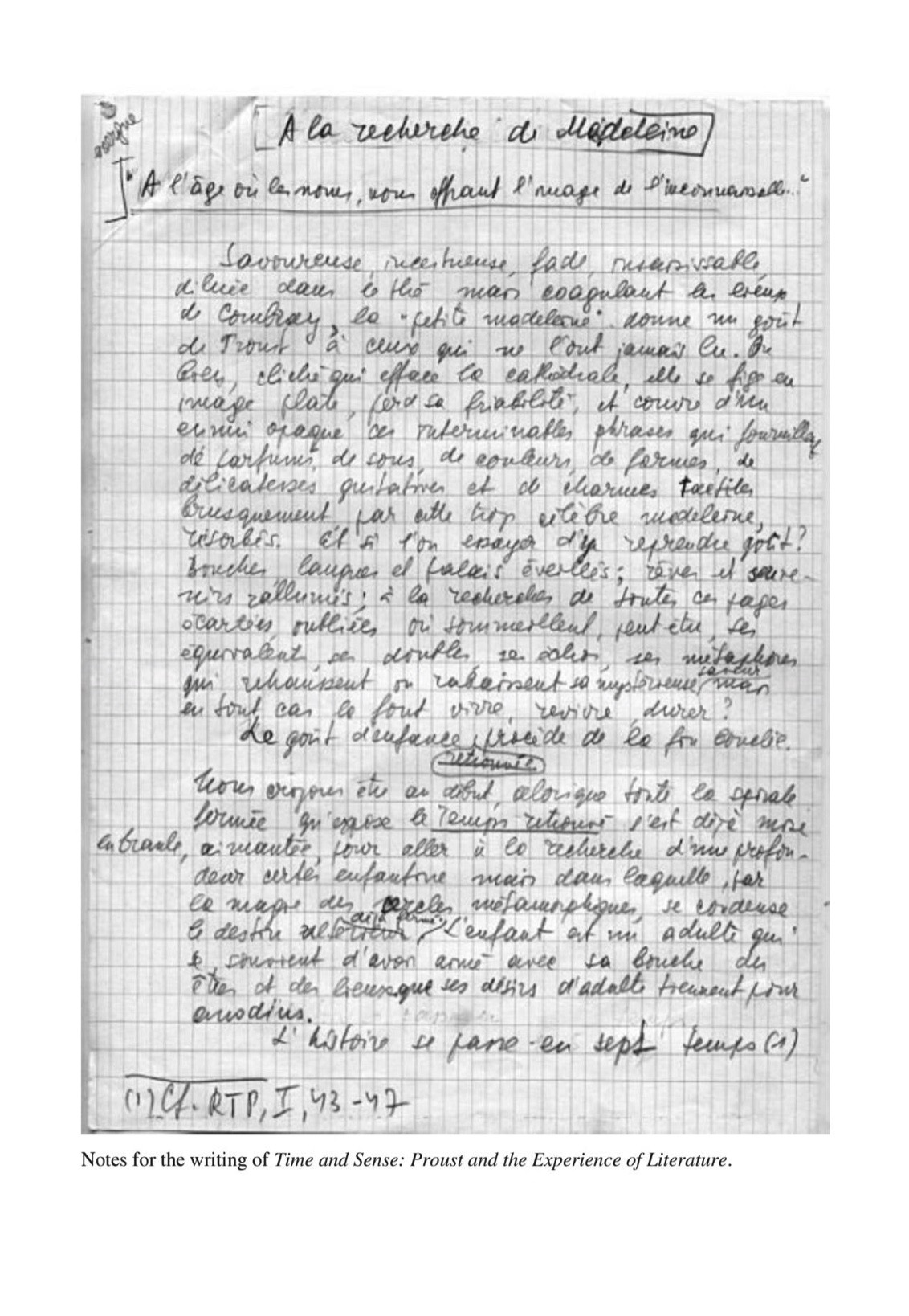|
||
|
|
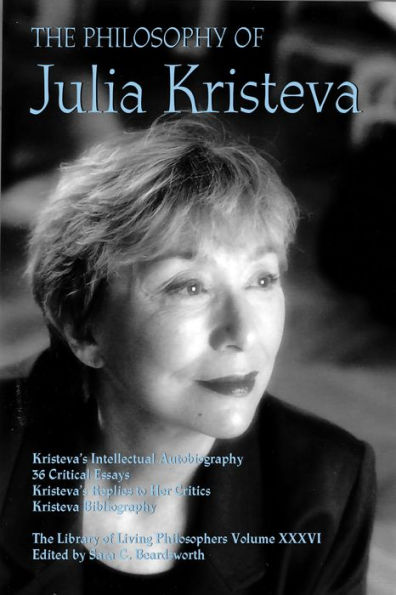 |
The Philosophy ofJulia Kristeva |
Table of Contents
Frontispiece
General Introduction to the Library of Living Philosophers
Founder’s General Introduction to the Library of Living Philosophers
Advisory Board
Preface
PART ONE: Intellectual Autobiography of Julia Kristeva
Sample of Kristeva’s Handwriting
Intellectual Autobiography of Julia Kristeva: Je me
voyage, A Journey Across Borders and Through Identities, Conversation with Samuel Dock
PART TWO: DESCRIPTIVE AND CRITICAL ESSAYS ON THE
PHILOSOPHY OF JULIA KRISTEVA WITH REPLIES
I. Language and Semiotics
1. Dominique Ducard: The Semiotic Chora and the Inner Life of Language
2. John Lechte: Language, Literature, and the
Founding Murder in the Work of Julia Kristeva
3. Eléana Mylona: Julia Kristeva Between the Semiotic and the Symbolic: The Process
of Significance
Reply to Dominique Ducard, John Lechte,
and Eléana Mylona
II. Theory of Literature
4. Marian Hobson: Julia Kristeva’s Farewell to
Philosophy
5. Miglena Nikolchina: Signifiance and Transubstantiation: The Returns of the
Avant-Garde in Kristeva’s Philosophy of Literature
6. Maria Margaroni: Artaud’s Madness and the Literary Obscene: Humanism and Its Double in Julia Kristeva
7. Philippe Forest: Birth of the Novel, Yesterday and Today
Reply to Marian Hobson, Miglena Nikolchina,
Maria Margaroni, and Philippe Forest
III. Psychoanalysis
8. Bernard Brusset: Julia Kristeva:
Original and Innovative Contributions at The Core of Psychoanalytic Theory
9. Jean-Louis Baldacci: Abjection, Reliance, and Sublimation
10. Jean-François Rabain: Julia Kristeva,
Reader of Aragon
Reply to Bernard Brusset, Jean-Louis Baldacci, and
Jean-François Rabain
IV. Art and Aesthetics
11. Anish Kapoor:
Dear Julia
12. Elaine P. Miller: Julia Kristeva on the Severed
Head and Other Maternal “Capital Visions”
13. Carin Franzén: An
Antidote to the Crisis of Contemporary Culture: Rereading Kristeva on Duras
14. Françoise Coblence: Aesthetics According to Julia Kristeva
Reply to Anish Kapoor,
Elaine P. Miller, Carin Franzén,
and Françoise Coblence
V. Philosophy in the Novels
15. David Uhrig: No Present Apart
16. Pierre-Louis Fort: Julia Kristeva and the
Detective Novel: Fiction and Metaphysics
Reply to David Uhrig and Pierre-Louis Fort
VI. Melancholy, Love, and the Sacred
17. Edward S. Casey: Depression: Heading Down and Out
18. Alina Feld: Melancholia: Passing Through and
Beyond
19. Michal Ben-Naftali: A Baroque Reading of Tales
of Love
20. Keren Mock: Language and Sacredness in the Quest
for Subjectivity
Reply to Edward S. Casey, Alina N. Feld, Michal Ben-Naftali, and Keren Mock
VII. Desire, Knowledge, and Belief
21. Robert Harvey: Of Incredibility in the Need to Believe: A
Philosophical Exploration
22. Alain Delaye: The Need to Believe and the Desire
to Know
Reply to Robert Harvey and Alain Delaye
VIII. Theory of Revolt
23. Emilia Angelova: Abjection and the
Maternal Semiotic in Kristeva’s Intimate Revolt
24. Sarah K. Hansen: Intimate Revolt at the Margins of Community and the Hope
of Postcoloniality
25. Daniel Cohn-Bendit: Hannah Arendt Prize Speech
2006
Reply to Emilia Angelova, Sarah K. Hansen, and Daniel
Cohn-Bendit
IX. Maternity and Maternal Reliance
26. Rosemary Balsam: The Controversial Nature of Kristeva’s “Maternal Reliance”
27. Rachel Boué-Widawsky: Maternal Eroticism and the
Journey of a Concept in Kristeva’s Work
28. Fanny Söderbäck: Maternal Enigmas: Kristeva and the Paradoxes of Motherhood
Reply to Rosemary Balsam, Rachel Boué-Widawsky, and
Fanny Söderbäck
X. Philosophy of Public Health
29. Charles Gardou: The “Intimate Face” of a Common
Thought and Action
30. Eivind Engebretsen:
Evidence-Based Medicine and the Irreducible Singularity of Being: Kristeva’s Contribution to the Medical Humanities
31. Marie-Rose Moro: The Polyglot Imaginary, a Poetics, and a Clinic
32. Jean Vanier: “Their Look Pierces Our Shadows”
Reply to Charles Gardou, Eivind Engebretsen, Marie-Rose Moro, and Jean Vanier
XI. Ethics and Politics
33. Cecilia Sjöholm: From Denial to
Forgiveness: Kristeva, Arendt, and Radicalization
34. Ewa Ziarek: A
Materialist Ethics of Psychoanalysis? Reflections on Matter,
Forgiveness, and Vulnerability
35. Noëlle McAfee: Kristeva’s Latent Political Theory
36. Kelly Oliver: The Democracy of Proximity and Kristeva’s New Humanism
Reply to Cecilia Sjöholm, Ewa Ziarek, Noëlle McAfee, and
Kelly Oliver
PART THREE: Bibliography of the Writings of Julia Kristeva
Index
